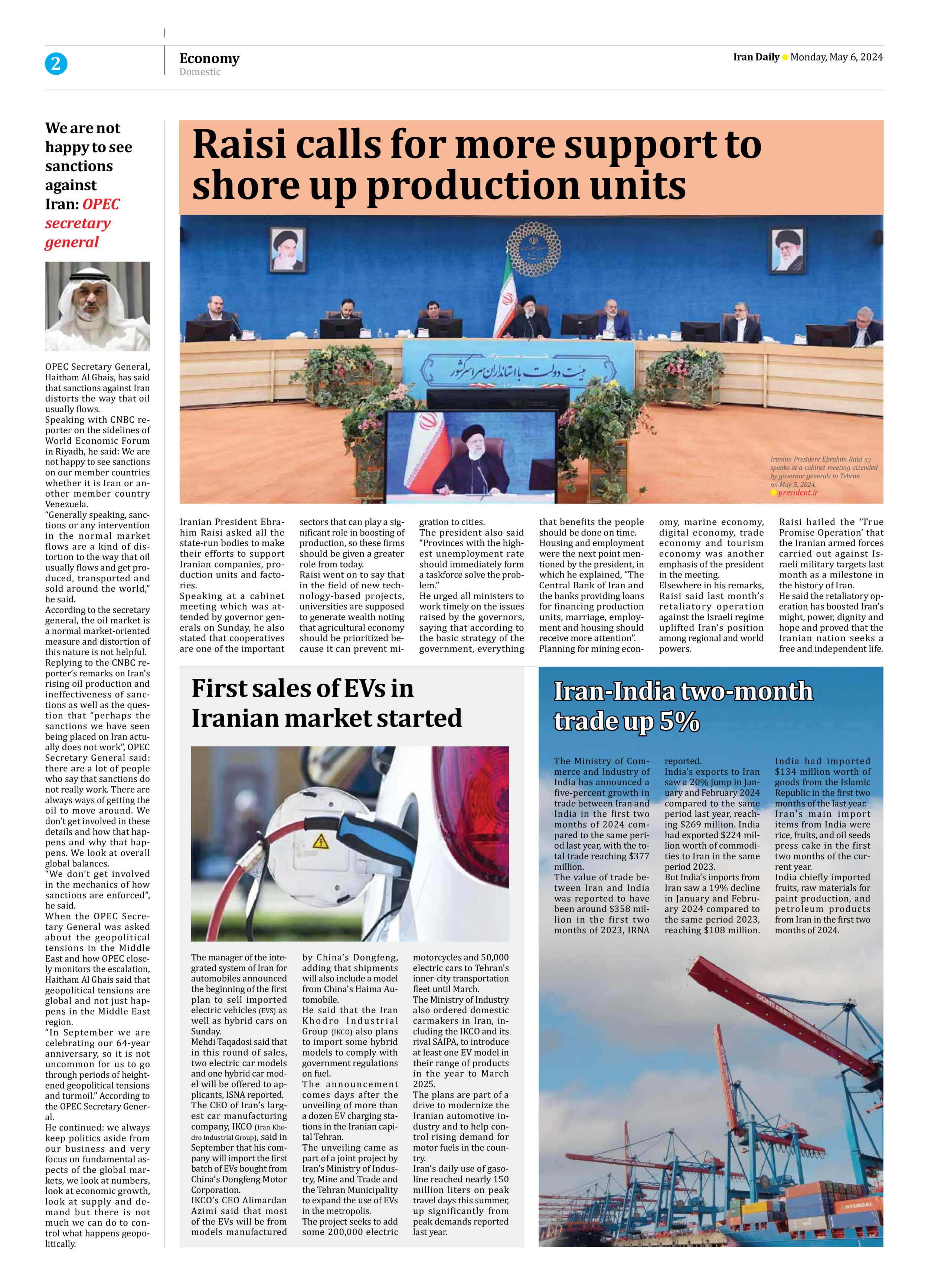
Copy in clipboard...
We are not happy to see sanctions against Iran: OPEC secretary general
Speaking with CNBC reporter on the sidelines of World Economic Forum in Riyadh, he said: We are not happy to see sanctions on our member countries whether it is Iran or another member country Venezuela.
“Generally speaking, sanctions or any intervention in the normal market flows are a kind of distortion to the way that oil usually flows and get produced, transported and sold around the world,” he said.
According to the secretary general, the oil market is a normal market-oriented measure and distortion of this nature is not helpful.
Replying to the CNBC reporter’s remarks on Iran’s rising oil production and ineffectiveness of sanctions as well as the question that “perhaps the sanctions we have seen being placed on Iran actually does not work”, OPEC Secretary General said: there are a lot of people who say that sanctions do not really work. There are always ways of getting the oil to move around. We don’t get involved in these details and how that happens and why that happens. We look at overall global balances.
“We don’t get involved in the mechanics of how sanctions are enforced”, he said.
When the OPEC Secretary General was asked about the geopolitical tensions in the Middle East and how OPEC closely monitors the escalation, Haitham Al Ghais said that geopolitical tensions are global and not just happens in the Middle East region.
“In September we are celebrating our 64-year anniversary, so it is not uncommon for us to go through periods of heightened geopolitical tensions and turmoil.” According to the OPEC Secretary General.
He continued: we always keep politics aside from our business and very focus on fundamental aspects of the global markets, we look at numbers, look at economic growth, look at supply and demand but there is not much we can do to control what happens geopolitically.







